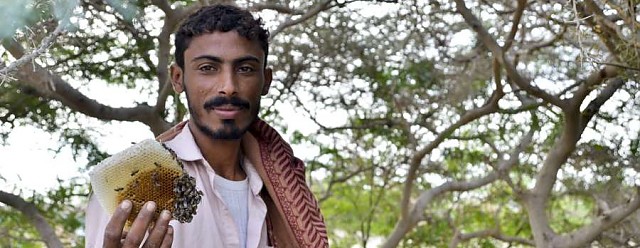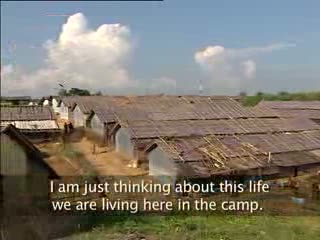Home > What We Do > Capacity Building > Livelihoods
Livelihoods

Promoting Self-Reliance
They may flee their homes with just the clothes on their backs, but forcibly displaced people always carry something of considerable value: their knowledge, skills and experience. A few of the more fortunate ones manage to bring along productive assets, such as tools, livestock or money. But no matter how much or how little they arrive with, most displaced people have the potential to become self-reliant in their places of refuge. UNHCR, through its Livelihoods Unit, helps refugees, refugee returnees, and internally displaced people tap this potential and build a platform for a better future.
Livelihoods allow people to secure the basic necessities of life, such as food, water, shelter and clothing. Engaging in livelihoods activities involves acquiring the knowledge, skills, social network, raw materials, and other resources to meet individual or collective needs on a sustainable basis. Displaced people are typically involved in activities such as agriculture, livestock breeding, fishing and trade. Income provides the basis for food security and self-reliance, contributing towards general stability, prosperity and peace.
Investing in livelihoods activities helps reduce the costs associated with the provision of aid and protection. Building self-reliance is essential throughout all phases of displacement; during emergencies, following emergencies, and towards durable solutions. Self-reliance will enable refugees to live with dignity and create a future for themselves and their families.
The 2014-2018 Global Strategy for Livelihoods was developed to strengthen UNHCR's capacity to facilitate self-reliance and to elevate its role as a fundamental aspect of the agency's protection work. Through implementation of market-based approaches informed by quality data, UNHCR aims to ensure that refugees and displaced people contribute to local economies as well as improving their own lives.
We run livelihoods projects in more than half of our field operations. These include facilitating access to savings and loan mechanisms; skills and vocational training; entrepreneurship training and business support services, agriculture and rural markets support; labour-based activities; cash or grant assistance in emergency situations; and facilitating access to apprenticeships and jobs as well as work and business permits, right to work and freedom of movement.
Urban Refugees and Livelihoods
UNHCR's urban livelihoods initiative aims at helping refugees face the challenges they encounter in cities and towns.
Access to Microfinance Services
Microfinance is one element in the facilitation of refugee self-sufficiency and the promotion of sustainable livelihoods.
Community Technology Access
A programme that allows refugees to use computer technology for education as well as business and livelihoods purposes.

